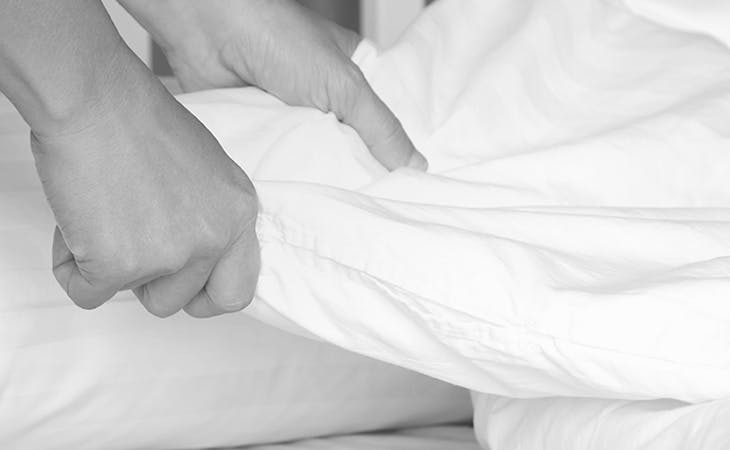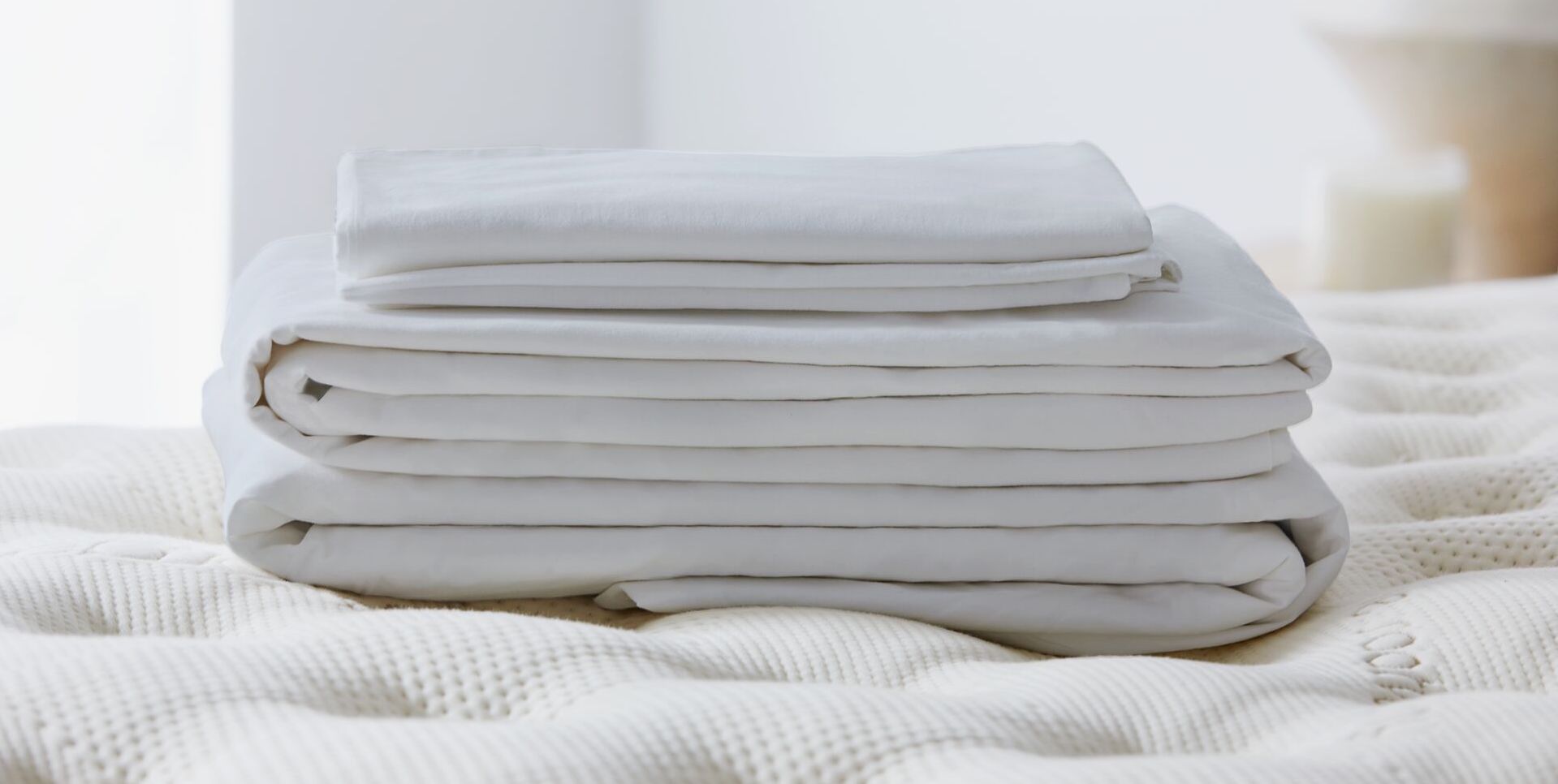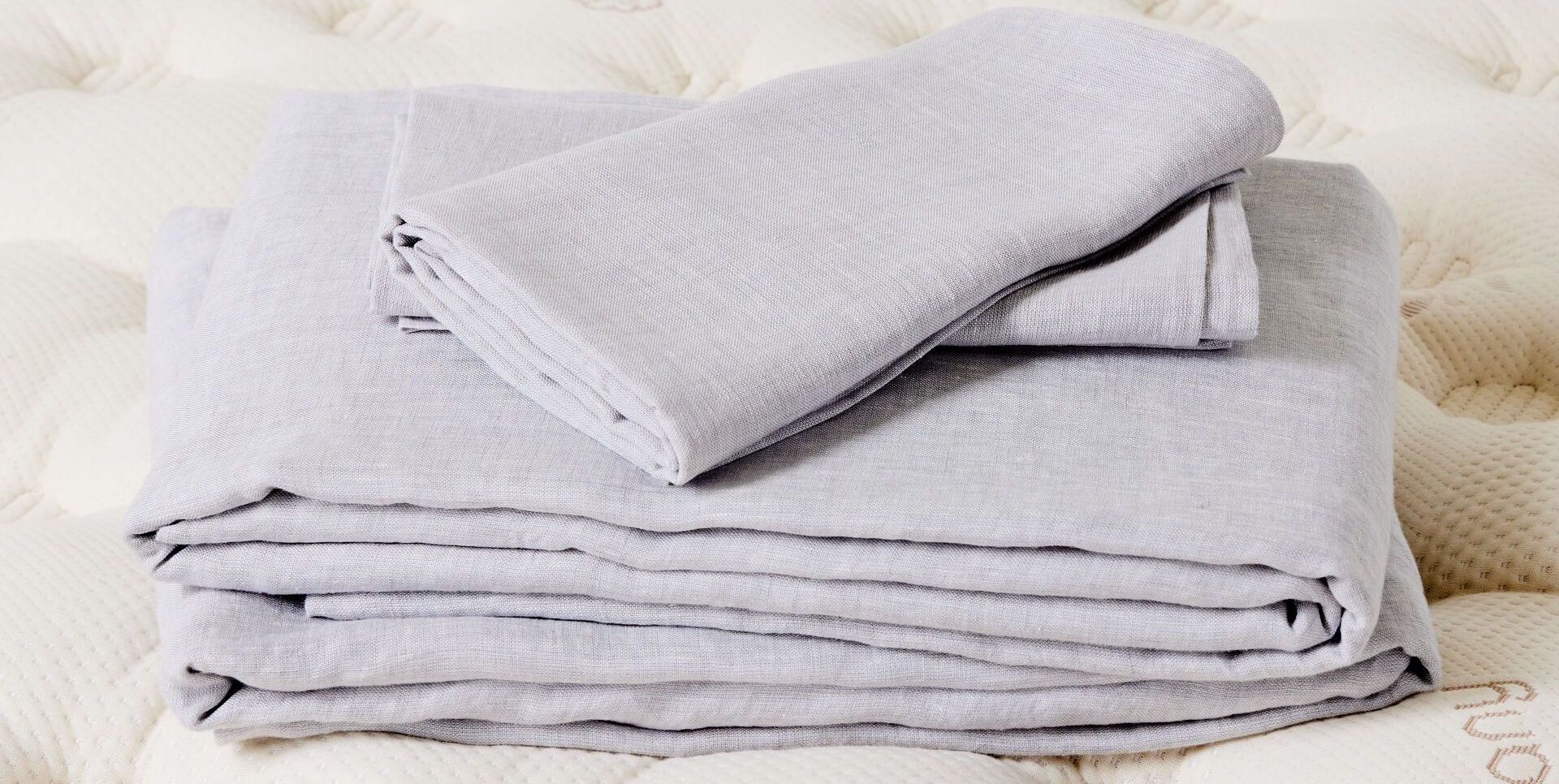I have a dirty little secret to confess: Sometimes I go a month (or close to it) without changing my sheets. It’s mostly due to how inconvenient I find the whole task.
First, there’s stripping my queen-size bed and wrestling the slightly-too-small spare fitted sheet onto the corners, a job that usually requires my boyfriend’s help.
Then I have to lug my laundry down three flights of stairs to the laundromat across the street (that’s New York City apartment living for you).
How long do most people go before changing their sheets?
It turns out that I’m far from the only one with this habit. A Mattress Advisor survey of more than 1,000 Americans found that, on average, people go 24.4 days before swapping their dirty sheets for fresh ones. Some of the other highlights from the survey:
- Men are more likely to wait longer between sheet changes than women (29.6 days vs. 19.4 days).
- On average, single people go 37 days before changing their sheets, while those in relationships go 21.8 days, and married couples go 19.9 days.
- 43% of men said they’d wash their sheets before a night out if they believed sex was a possibility, while 33.4% of women said they would do the same.
- On average, men wait 11.7 days to wash their sheets after sex, while women wait 4.3 days. (Here’s how to find the best mattress for sex.)
What happens when you don’t change your sheets
“What people really need to understand is that we’re all walking bags of microbes,” says Jason Tetro, aka “The Germ Guy,” a microbiologist in Canada and author of The Germ Files. “Every single hour, we’re going to be shedding bacteria—and the numbers vary, but it’s in the millions every hour.” Yes, you read that correctly: millions.
A study published in the Journal of Clinical Microbiology found that the highest amounts of bacterial contamination on sheets was in the areas of the head, groin, and legs. If you’re a side sleeper, your breath could also contaminate that side of your sheets and pillowcases with bacteria as well.
Bacteria need three things to thrive in your bed: water, food, and warmth, says Tetro. “Unless you’re living in an igloo, you’re going to have warmth—and the likelihood is you’re going to have food because the bacteria live on you,” he says. “They like what you’re giving off, which includes skin and oils.”
Whether or not the bacteria live well comes down to the water concentration in your sheets. Tend to sweat buckets overnight? Making your bed as soon as you wake up provides the perfect breeding ground for bacteria. “If you sweat a lot, you’re going to want to give your sheets a few hours to dry out before making your bed because that will reduce the likelihood that the water will be there for the bugs to grow,” explains Tetro. (Sheets made of breathable materials, like Saatva’s line of

Organic cotton sheets with a timeless elegance
, will wick moisture and keep you sleeping cool.)
When the bacteria are all coming from your own body, they’re relatively harmless. “The worst possible thing is that your sheets are going to smell,” says Tetro. But once you start introducing bugs from the outside—say you take a flight, skip the shower when you get home, and immediately head to bed—minor issues could arise.
In this case, “the majority of concerns are going to be skin infections,” Tetro says. “You might end up with more acne or dandruff.” If you enjoy sleeping au naturel, you may have more to worry about, though. “For those naked sleepers, something may crawl up you and you may end up with a UTI, but there’s a very, very low likelihood of this happening,” he adds.
Viruses die in a matter of hours, so you don’t have to be concerned with them lingering on your sheets—although the norovirus can survive for about a month, says Tetro, who rightly notes that you’ll probably want to change your sheets ASAP if you’ve come down with this icky illness.
How often you should change your sheets
If you properly allow your sheets to dry out in the morning, then bacteria will grow for roughly two weeks, with a peak amount on your sheets at around the 14-day mark, says Petro. “So scientifically speaking, 14 days is probably when you’re going to want to change your sheets,” he says. If you’re someone who makes their bed first thing in the a.m. without letting your sheets air out (or you don’t shower every night before bed), then it’s best to change them a little more often—every seven to 10 days, suggests Tetro.
The best way to clean dirty sheets
“From a cleaning perspective, hot water is your friend,” says Tetro. Research from the American Society for Microbiology found that washing bed linens in 140°F for 10 to 13 minutes is ideal for destroying bacteria. (Here’s how to clean your mattress.)
“If you’re using cool water and you’re not using a detergent that is known to kill these bugs, they have a nice bit of a rollercoaster ride, and then they end up somewhere else,” Tetro points out. “And if you don’t put your sheets in the dryer, then you’re not getting the heat that’s necessary to kill them.”
Although hot water will effectively kill any microscopic creepy-crawlers on your sheets, most bed linens will come with instructions to launder them in cold water to preserve the fabric and extend their life. So if you prefer to use cold water, make sure to toss your sheets in the dryer after. (Not sure what to do with your worn-out sheets? Here are 15 crafty ways to use your old sheets.)
Just be sure not to ruin all of your hard work by putting clean sheets onto your bed with dirty hands. “For the love of goodness, wash your hands before you handle clean laundry,” Tetro says.






